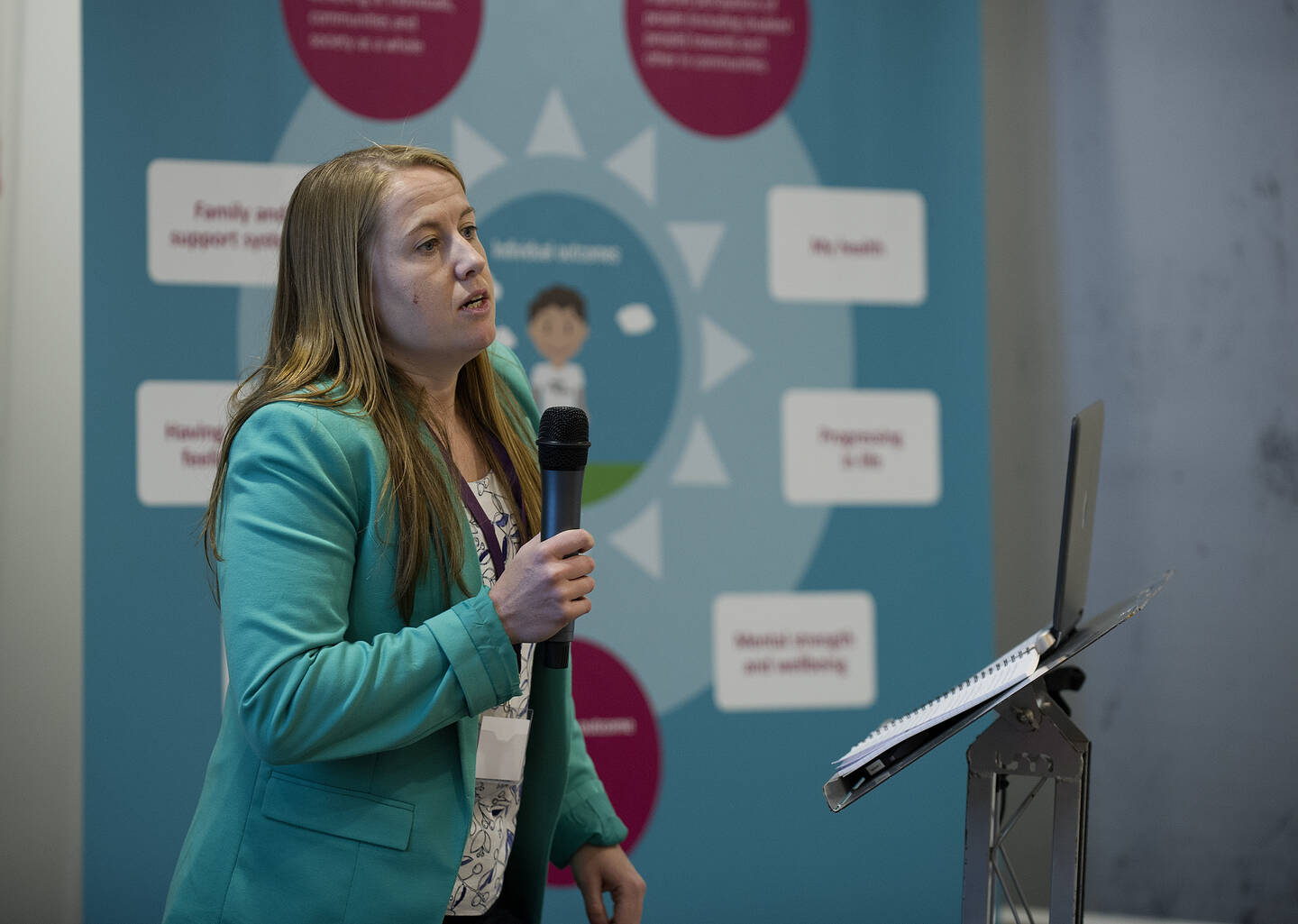Blog: "Want more to be active? Enjoyment and inclusion is the way."
Working to bring organisations together and make sure inclusive practice across sport and physical activity, Head of Programmes at Activity Alliance, Kat Southwell reflects on the importance of working together, challenging traditional practice, and how the Get Out Get Active approach is helping to integrate physical activity into more lives.

The inequality gap is growing, and it has never been more important to ensure that everyone has access to physical activity. If we are to achieve this, it is important to work together. We need to acknowledge and respond to the existing inequalities and recognise that disabled people are part of every demographic in society. It is with this clear understanding and leadership that we will inspire a culture where partners will consider the needs of those who will benefit most from being more active.
With an ever-growing demand from disabled people to be active, it has never been more important to make sure that everyone has access to physical activity. We need to do things differently to reach and impact those who will benefit the most from being active. As the leading voice for disabled people in sport and activity in England, Activity Alliance are working with partners across the UK to bring a different approach that addresses these inequalities at the heart. Get Out Get Active (GOGA) is a programme created to bring disabled and non-disabled people together to be active, directing attention to the least active communities.
GOGA shows us that being active together and reaching the least active go hand-in-hand, it’s not one or the other. This focus ensures that the true power of accessible and inclusive activity is realised, meaning we can tackle inequality in access to activity directly. We achieve this by working with our communities, focussing on engagement over rushing into delivery, striving to achieve outcomes as opposed to numbers, and not being afraid to try different things where traditional approaches have failed.
It isn’t so much about a programme of activity, but the way in which you approach the issue of inactivity for disabled people. Activity Alliance’s Annual Disability and Activity Survey shows a worrying negative impact of the pandemic. Of those disabled people that are back to being active, they are less likely than last year to feel activity leaders met their needs and included them and are less likely than non-disabled people to say returning to activity was a positive experience (52% vs 70%).
Enjoyment and inclusivity needs to be at the heart of sport and physical activity. For us the biggest success factor behind this is people. Participants that learn about others in their community, a workforce that is representative of and gets the people they are supporting. Partners that aren’t afraid to work differently, and funders that are supportive and buy in to our way of delivery.
With the support of our founding funders Spirit of 2012 and further investment from Sport England and the London Marathon Charitable Trust (LMCT), GOGA has supported over 40,000 disabled and non-disabled people to be active using over 3,000 different activities and interventions. Throughout the programme 35 localities across the UK have tried and tested different activities to encourage those least active in the community to become active.
To reach those most inactive audiences, you have to consider how you can innovate and make the changes. Changes needed to bring opportunities to be active to those who thought it could never be for them. GOGA isn’t so much a programme, but a principle. Pressure free and fully inclusive opportunities to be active are essential if we want to continually improve national activity levels.
The most important outcome to us is that our participants feel healthier and happier. And our GOGA partners become more competent and confident to reach the very least active.
We have a huge amount of learning and are keen to share and encourage better practices to engage the very least active. Find our learning on the GOGA website. Likewise, we are keen to hear from others about how we can continue to evolve.
Help us by becoming passionate advocates of inclusive practice and engage with those that will benefit most from being more active.